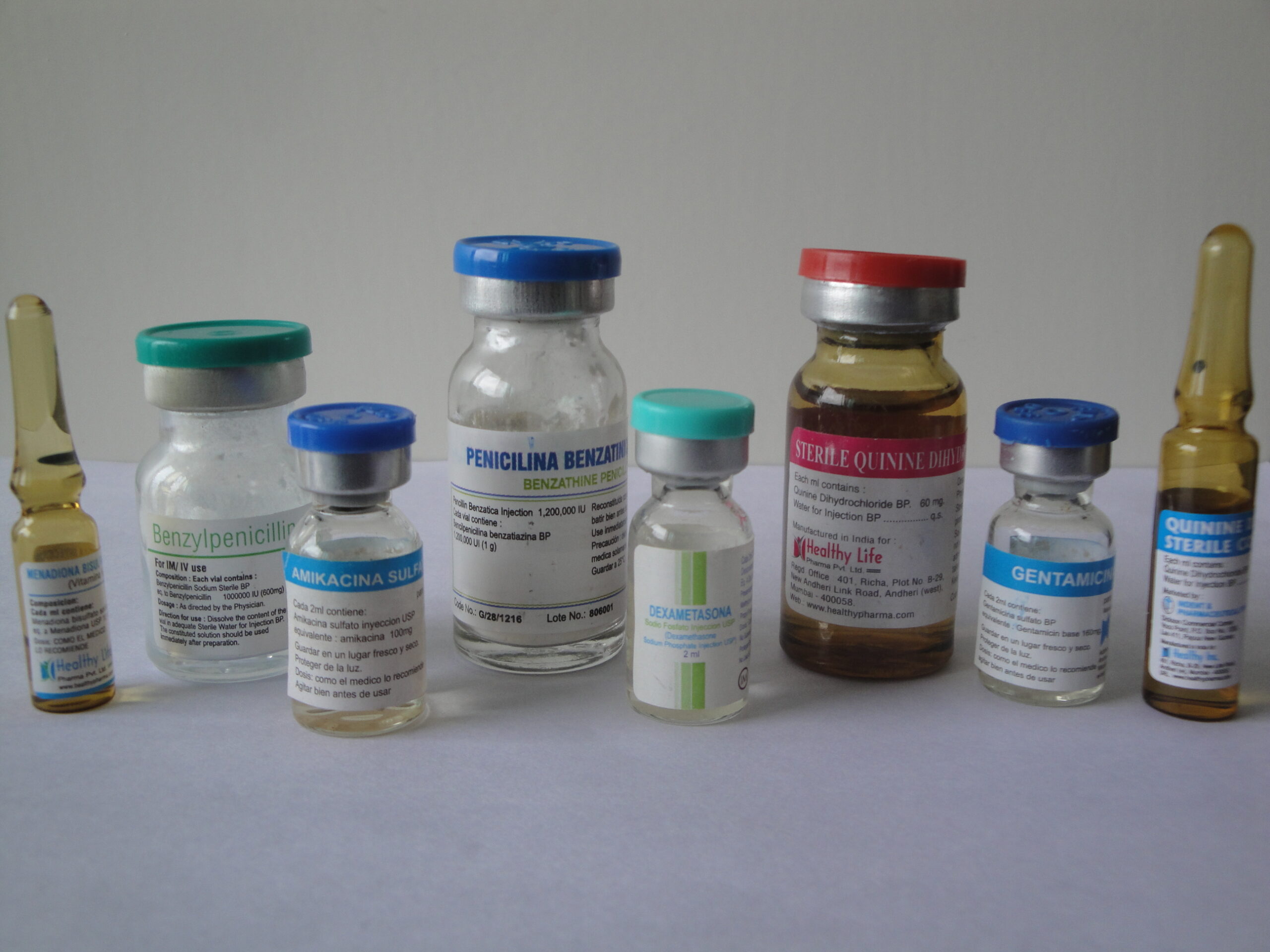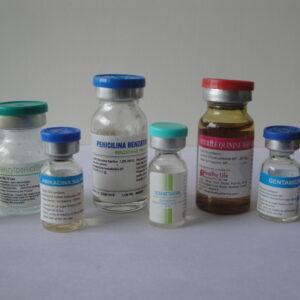Description
Vitamin B-complex veterinary injection
Vitamin B-complex injections are commonly used in veterinary medicine for various purposes. The B-complex vitamins, including B1 (thiamine), B2 (riboflavin), B3 (niacin), B5 (pantothenic acid), B6 (pyridoxine), B7 (biotin), B9 (folic acid), and B12 (cobalamin), play vital roles in metabolism, immune function, and overall health. Here are some common usages of Vitamin B-complex injections in veterinary medicine:
Nutritional Support: B-complex injections are often used to provide nutritional support to animals with deficiencies in these vitamins. This can occur due to insufficient dietary intake, malabsorption, or specific health conditions.
Stress Management: Animals undergoing stress, such as illness, surgery, transportation, or changes in their environment, may experience increased requirements for B vitamins. Vitamin B-complex injections can help support their immune system and overall well-being during these challenging periods.
Convalescence: Pets recovering from illness, surgery, or trauma may receive B-complex injections to aid in the recovery process. These vitamins play crucial roles in tissue repair, wound healing, and overall health.
Neurological Disorders: Some B vitamins, particularly B1 (thiamine) and B12 (cobalamin), are essential for proper neurological function. Deficiencies in these vitamins can lead to neurological disorders, and B-complex injections may be prescribed to address these issues.
Metabolic Support: B-complex vitamins are involved in various metabolic processes, including the breakdown of carbohydrates, fats, and proteins. They are essential for energy production and overall metabolic function.
Gastrointestinal Disorders: In cases of gastrointestinal disorders or conditions that affect nutrient absorption, B-complex injections may be administered to ensure adequate vitamin levels.
The specific dosage, frequency, and indications for Vitamin B-complex injections will depend on the individual animal’s health status, the underlying condition, and the veterinarian’s assessment. It’s important to note that administering any medication or supplement, including vitamin injections, should be done under the guidance of a qualified veterinarian.
Always consult with a veterinarian to determine the appropriate use, dosage, and frequency of Vitamin B-complex injections for your specific animal’s needs. Veterinary protocols and recommended products may vary, so professional advice is crucial for the health and well-being of your pet.
Vitamin B-complex injections for veterinary use are typically administered intravenously (I.V.) to address various health issues in animals. The B-complex vitamins are a group of water-soluble vitamins that play crucial roles in metabolism, energy production, immune function, and overall well-being. Here are some common usages for Vitamin B-complex injections in veterinary medicine:
Nutritional Support:
Animals that are malnourished or have inadequate dietary intake may receive B-complex injections to address nutritional deficiencies.
Stress and Illness:
During periods of stress, such as illness, surgery, or other challenging situations, animals may experience increased metabolic demands. B-complex injections can help support the immune system and provide essential nutrients during these times.
Convalescence:
Pets recovering from surgery, illness, or injury may receive B-complex injections to aid in the healing process and promote a faster recovery.
Gastrointestinal Disorders:
Animals with certain gastrointestinal disorders or malabsorption issues may benefit from B-complex injections to ensure they receive essential vitamins directly into the bloodstream.
Neurological Disorders:
Some B vitamins, such as B1 (thiamine) and B12 (cobalamin), are crucial for proper neurological function. Deficiencies in these vitamins can lead to neurological disorders, and B-complex injections may be prescribed to address such conditions.
Metabolic Disorders:
B-complex vitamins are involved in various metabolic processes. Animals with metabolic disorders may receive these injections to support their overall metabolic function.
Lack of Appetite:
B-complex injections may be used to stimulate appetite in animals that are not eating well.
It’s important to note that the specific usage and dosage of Vitamin B-complex injections depend on the individual animal’s health condition, the severity of the issue, and the veterinarian’s assessment. Veterinary professionals will determine the appropriate treatment plan based on the specific needs of the animal.
As always, only a qualified veterinarian should prescribe and administer Vitamin B-complex injections to animals. Self-administration or inappropriate use of medications can lead to adverse effects and may not address the underlying health issue properly.




